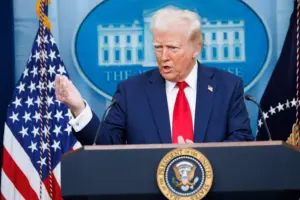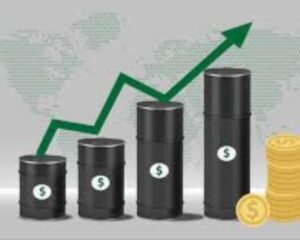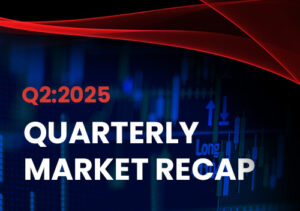President Donald Trump announced on Thursday that his administration plans to impose a 200% tariff on French Champagne and other European alcoholic beverages in response to the European Union's decision to reinstate tariffs on American whiskey. This move further escalates tensions between the U.S. and the EU, adding uncertainty to global trade markets.
Trade Dispute Sparks New Tariff Battle
Earlier this week, the European Commission announced that it would lift the suspension on previous tariffs against U.S. whiskey, imposing a 50% import tax as part of its retaliation against U.S. tariffs on steel and aluminum. European Commission President Ursula von der Leyen defended the decision, stating that the EU’s countermeasures were "strong but proportionate" and necessary to protect European businesses and consumers.
In response, Trump took to Truth Social to accuse the EU of being one of the world’s most abusive trade authorities, formed "solely to take advantage of the United States." He warned that unless the whiskey tariffs were removed immediately, the U.S. would implement a 200% tariff on all wines, champagnes, and alcoholic products from France and other EU nations. Trump claimed this measure would benefit American wine and champagne producers, potentially boosting domestic sales.
Economic Impact and Market Reactions
The announcement had an immediate effect on European liquor stocks. Paris-traded shares of LVMH Moet Hennessy Louis Vuitton, the world’s largest luxury goods company, dropped for the ninth consecutive day, declining by 13% since late February. Other major alcohol brands, such as Remy Cointreau and Pernod Ricard, also fell by over 7% in recent days.
American alcohol producers were not immune to the impact. Shares of Brown-Forman, the parent company of Jack Daniel’s, dropped 5.9% this week, despite experiencing a slight increase on Thursday. Investors fear that the ongoing trade war could hurt global alcohol sales, forcing companies to raise prices or absorb higher costs.
Trump Administration's Stance on Trade Tariffs
U.S. Commerce Secretary Howard Lutnick defended Trump’s aggressive stance, stating that the administration believes in "fair and balanced trade". He criticized the EU for imposing higher tariffs than the U.S., arguing that it was time to "level the playing field."
The Trump administration has also signaled that more reciprocal tariffs will be announced in April, potentially impacting other European industries beyond alcoholic beverages. While it remains unclear whether negotiations will de-escalate the situation, businesses on both sides of the Atlantic are bracing for increased costs and economic instability.
What’s Next?
With both the U.S. and EU imposing retaliatory tariffs, trade relations remain strained. Investors and policymakers are watching closely to see if diplomatic discussions can ease tensions, or if further tariff escalations will disrupt the global market. The next few weeks will be critical in determining whether these trade policies will lead to prolonged economic friction between the two major economies.





